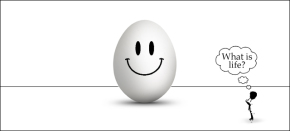This post is part of an email exchange regarding Lance Armstrong, between me and my two, best friends. One is a retired attorney and the other is a Senior Superintendent for a large, commercial construction company. I include their comments because I highly value my friends’ opinions. Both make — to my way of thinking — excellent observations.
My comments are found below.
From the attorney:
We want them to win. We make winning the only thing worth while. We praise winners, exalt them, pay them enormous amounts of money, make them national heroes, ask them to sacrifice everything for the win. We ignore them, revile them, forget them if they don’t win, denounce them if they don’t give their all. Then we all pretend to be shocked and horrified when we find out that they went the extra mile to give us what we wanted. Lance Armstrong is a decent guy who has done a great deal of good in the world with his money and his fame. Where is the praise, the exaltation, the recognition for that? Not even an honorable mention, not even a thank you, when he needs it most.
From the Senior Superintendent:
And it’s too bad, isn’t it? Lance has done a lot of good. The Livestrong Foundation has advanced the (search for a) cure of various cancers beyond what may have been imagined during the years prior to its inception. Lance overcame cancer. He is very silent about his accusations for some reason, as his sponsors drop off one by one. It leads one to believe that there is more to the accusations than just empty spirited darts thrown at a super star.
Will he be remembered for being a cancer survivor, and the bike king? Will he be remembered for Livestrong Foundation who’s sole purpose was to help people? Or will he be remembered for being another kind of king, as the article leads.
And my observations:
Here’s how I see this particular imbroglio . . .
He, the very human Lance Armstrong, overcame terrible obstacles and succeeded. Good for him. I mean that sincerely. But my congratulations have nothing to do whatsoever with cycling. What Armstrong dealt with in his personal life is inspirational. I happen to know a couple of guys who also fought against cancer diagnoses, and they both refused to give up. They did everything they could to fight back, and they succeeded. Both of these guys inspire me.
Since winning his very first Tour de France, Lance Armstrong has wanted for nothing. Until this scandal broke, he received more praise, exaltation and recognition every year than all of us (combined!) will in our entire lives. Over the years, Armstrong garnered awards and sponsorships and oodles of the things mere mortals can only dream about. Did he do some good things with his fame and fortune? Yes, he did. He’s not a monster. (We’ll leave Sheryl Crow out of this particular conversation.) But by way of clarity, Armstrong profits quite handsomely from his foundation. There’s nothing wrong with that, but let’s face it, Mother Teresa he ain’t. As far as thanks are concerned, the lad has been feted and lauded year after year for winning an incredible, record-breaking amount of Tour de France competitions, along with the work of his foundation.
We should all be so lucky.
Problem is, luck had nothing to do with any of it.
Again, I think the essence of the problem is quite simple; if you play a game and profess to agree to the rules of the game, and then willfully violate those rules — game after game after game — and then you get caught, suck it up and take your punishment. A bit of reality: If any of us had a son, daughter, sister or brother competing (clean and perhaps naive) in the Tour de France, and they lose to the guy who’s juiced up to his gills, would that alter our thinking, generally, about the nature of that competition, and specifically, about that particular competitor?
Does every competitor in the race juice? Maybe they do. Maybe not. But if the rules forbid it and you do it anyway, you’re a cheater and you’re trying to get away with something that violates a very basic sense of right and wrong in most people. Yes, we love winners, but winning isn’t the only thing that’s worthwhile. Winning by cheating isn’t winning.
I’ll write that again.
Winning by cheating isn’t winning. It’s cheating.
We create laws to prevent people from cheating. We don’t like cheaters, which is why we throw some of them in jail, and others we throw under the proverbial bus.
To keep things in perspective, I don’t have a problem with changing the rules of Le Tour de France. Let ’em all cram their bodies with stuff that glows in the dark and makes their hearts pump like cheetahs in heat. If that’s what the rules say and all the contestants know it and agree to it, then let the games begin. (Le Jus de France?)
But until then, play by the rules, Lance. Just like we learned in kindergarten.






